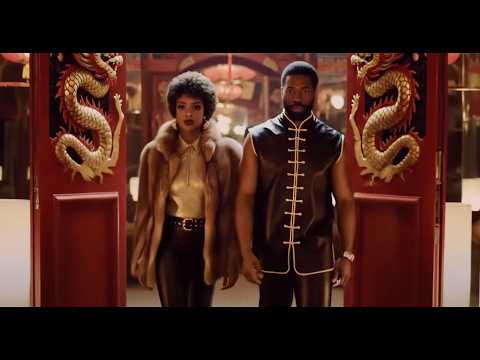
As Wu-Tang Clan rose to fame in the 1990s, their unique blend of storytelling and epic fiction was undeniably a product of human creativity. But their latest video, ‘Mandingo,’ suggests a significant shift.
Directed by Jason Zada, the video for ‘Mandingo’ embraces the Wu-Tang Clan’s signature style, including kung fu aesthetics, swordplay, and a gritty reimagining of New York City. However, the production method is what sets this video apart.
According to Zada, ‘Mandingo’ was entirely created using Google’s DeepMind Veo 2, a text-to-video generator. Unfortunately, the tool’s capabilities appear limited, leading to some noticeable issues. The protagonist’s face subtly shifts throughout the video, and the female accomplice’s hair length changes rapidly. The video’s visual quality is also subject to the problems common to AI video generators.
As the hero battles adversaries in the mythical Shaolin, the sloppiness in the characters’ appearances and movements, and the physics-defying fight scenes are highly visible. These issues have led to negative reactions among fans.
Many viewers saw the ‘Mandingo’ music video as subpar, with some describing the video as ‘janky as shit,’ and even expressing regret about buying tickets to the group’s upcoming farewell tour. One user on Threads criticized the video, stating, “It looks ugly, featureless, full of glaring errors, and lacked any sort of spirit or emotion.”
In 2023, the group’s leader, Robert ‘RZA’ Diggs, defended the use of AI in music in an interview with Rolling Stone, stating, “AI is a powerful thing, and it should be just another tool for us.”
“It should be just like the ASR, the MPC, Pro Tools, or Ableton — another tool used to get musical creative ideas expressed, captured, and then make the best song that we can that make people dance, laugh, become inspired or introspective,” RZA continued. He acknowledged the potential dangers of AI, particularly for the ability to generate the song. “And I think the danger in it is not immediate, but in the long term, that natural human quality of inspiration that we can’t actually define [may lessen]. I don’t think computers have reached the level of definition of that.”
Zada’s decision to use the AI technology was influenced by Danny Hastings, a longtime creative director for the collective. The video production process remains a source of discussion, with mixed reactions.
While the Wu-Tang Clan has produced many elaborate music videos using humans, cameras, and special effects, some fans feel the new direction is a step backward.


